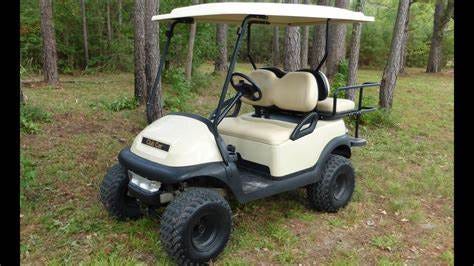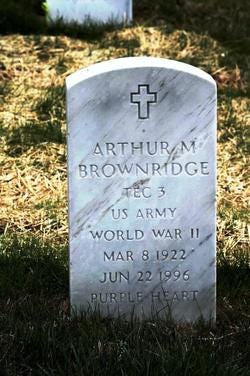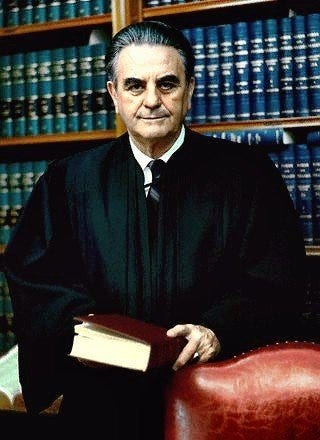A Programming Note becomes Blog Material. Such is the way of things this week. The Idea Factory is running one shift, not the usual three. The Morning Man is often only as good as his material. This week, I wouldn’t feed his material to Crazy Chester the dog.
Until further notice, the Wednesday TML will arrive in mid-afternoon, not late morning. Bossman Mike has me working in the cart barn Wednesdays, 6-11 AM. I can’t be two places at once without a station wagon, so. . .
That’s the programming note. The material is about jobs. First jobs, specifically. What they should mean, why they matter, why a kid should have one by at least the age of 16.
The barn job at Hickory Woods might very well be my last. It’s an entry-level gig; all my barn-mates are either 16 or 66. The rearview mirror is a good vantage point for sound advice on working.
My first (and only) job as a kid was at Congressional Country Club outside DC.
Congressional was a Gatsby-esque place, solid with old money and deep family ties. To roam CCC’s halls was to feel what wealth feels like. Equal parts decadence and permanence, frivolity and achievement.
Congressional is known for its elite membership and for hosting at least two US Opens. I started there as a short-order cook and counterman, before being promoted to Lawn Terrace Waiter. The Lawn Terrace was a rectangular swath of perfectly manicured grass, upon which sat an acre of tables, chairs and umbrellas. The whole set-up overlooked the pool. And the golf course, which fanned out beneath us, down the hill. like a peacock’s tail. Just showin’ off.
Congressional, Lawn Terrace in the background (Golf Digest)
Women of all ages, bearing the well-scrubbed look of privilege, lolled on the lawn from noon ‘til dinnertime. I fetched them food and drink.
CCC employed me for seven summers, from before my sophomore year in high school to the year I graduated college.
I learned stuff I never found in books. A few lessons:
Tolerance: When you’re flipping burgers or serving vodka tonics at noon, you have no power. That is, when a wealthy woman snaps her fingers at you and calls you “honey’’, you don’t do anything but smile and take it.
Respect for others: When you’re a waiter and you rely on efficient cooks, you show them the utmost respect, lest they mess up your orders on purpose, in unspeakable ways.
Composure in the ragged moments: When they order a rum and Coke and you bring them a rum and Pepsi, they will know, and they won’t be happy. Act appropriately grief-stricken. Save your snide remarks for the bartender.
Seven summers at The Club taught me the dignity of work, the value of reliability and the importance of showing up 5 minutes early. It told me to take (stuff) until I was in a position to give (stuff). Don’t quit one job until you have another and never think you can’t be replaced.
Congressional taught me there are all kinds of people in the world, and each has something to offer. Food-service workers come from all different backgrounds. White suburban kid serves food made by Jamaican immigrant to black tennis star. (Arthur Ashe, a couple times.)
I worked for all kinds of lunatics. One guy thought it would be a great idea on the Fourth of July, to fill the baby pool with champagne. Another guy worshipped a specific type of grill, and made me demonstrate to the club’s top chef how I cooked a hamburger on it.
The club security man spent his weekends with a mine sweeper, working the Civil War battlefields of Maryland and Virginia, the way those folks do at the beach. He once gave me a bullet with teeth marks in it.
The club garbage man worked in solo silence in a cinderblock cubicle, 8-by-8, seen only when he was transferring garbage from cans to Dumpster. Booker McCoy was like a mean troll, or so I thought. Eventually, I would come to speak to Booker, know him a little and like him a lot. He was a 60-something Black man, son of sharecroppers, couldn’t read much, or write. Not a guy Johnny Lily White would run into on Serenity Lane.
Booker was good people. He spoke lovingly of his parents and his boyhood in Alabama. He told me his dream was to retire with a little money saved, move back home and find a little house with a front porch.
Booker did retire, my last summer at CCC. Two days later, he was caught in the crossfire of a liquor store robbery and shot. Booker died on the spot.
Arthur Brownridge was my first boss. Art ran the Pavilion, which was what the club called its snack bar/lunch place by the pool. First day I’m in the Pavilion, Art notices I’m making a mess of the linoleum floor. He’d asked me to mop it. I’d dunk the mop in the bucket without wringing out the water. The floor looked like a flood.
“What the hell you doin’?’’ he asked.
I explained to Art I’d never mopped a floor. “Our house has carpet,’’ I said.
Art shook his head. That moment embarrassed me sufficiently enough, I never did a half-ass job for Art again, at any task.
Randy Watkins
Art was a Black man, too. He was a fun guy, a funny guy whose soul ran deep. This was the mid-70s, so Art still heard racial jokes from the members. He was a WWII vet. Later, after his death, I would learn that he’d been decorated for his bravery while serving in Europe. That wasn’t enough to prevent people at Congressional from calling him “Boy’’ on occasion.
Art grinned and bore it and died a little inside, every time. “I know those folks aren’t better than me,’’ he’d say. From Art, I learned the beauty dignity bestows.
The Hon. Judge John Sirica
Congressional was an important place, or at least a place of important people. My first summer there, 1973, I’d take a short cut to the Pavilion that took me through the men’s locker room. Off to one side was a smaller area, with a massage table. That’s how I met a judge, who happened to be a member.
He was a very nice man, said hello to me every morning asked me how I was doing. I never know his name, just called him Judge. Late that summer, right before I went back to school, Art said to me, “You know who that man is, don’t you?’’
I did not.
“That’s Judge John Sirica, the judge at the Watergate trial.’’
I loved working at Congressional. The people I met, the pride I learned to feel, the confidence I gained in myself. The utterly priceless notion that we’re all just people. We all want the same things. Love, dignity, respect, validation. A seat on the porch at the end of the day.
I’ve tried never to act as if I’m better than anyone. I’ve tried to withhold my anger and holster my ego toward those who think they’re better than I.
I might have gathered all this knowledge at a different job. When you’re a teenager saving for a car, you’ll work on the cheap. Getting work isn’t hard when you’re a kid. What I got at Congressional was better than cash: A crash course in melting-pot humanity. Arthur taught me a lot. So did the ladies snapping their fingers at me.
That’s the beauty of a first job. You’re still impressionable enough, so entirely free of jade, your mind is open to everything. Lessons learned then still resonate now.
I told my son when he was a working kid that the best thing about a summer job is it shows you what you don’t want to do the rest of your life. That is true. I would not have wanted a career as the Lawn Terrace Waiter. What I forgot to tell Kelly was, those were among the best experiences of my life. An education unto themselves.
See you here next Wednesday afternoon. Not morning. I’ll be in the cart barn. Learning.
TUNE O’ THE DAY. . . After that sermon, what did you think I’d play? Made originally by the great Isleys of Lincoln Heights, made better here (IMO). . .







I’ve always loved this post. I also think this job was excellent preparation for becoming a newspaper reporter. One learns to smile and keep one’s mouth shut unless asking questions. And if someone doesn’t like the questions, you keep on smiling (though closer to grimacing).
I worked most of my working life , driving a forklift for the same company. My coworkers ran the gamut of college graduates to some that could barely read. We were a band of brothers for sure ! I also umpired for over fifty years from 8u to college games. My fellow umpire's were, for sure, brothers and sisters in blue ! My last few years, I worked at a Kroger store in Montgomery, Ohio. During my forklift career, I learned to cuss like a sailor. My umpiring career helped me learn, as one of my mentors called it, " People skills ". That certainly helped me at Kroger. My career ran the gamut from the nicest people you would ever want to meet, from truck drivers, coaches, and shoppers, to ones that made you fight to keep your sanity. I wouldn't have traded those experiences for anything !